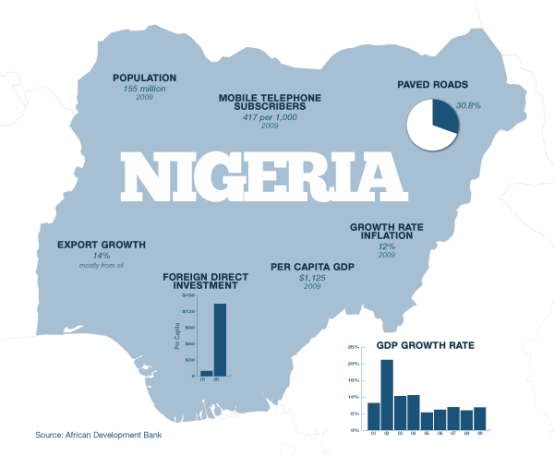There are no products in your shopping cart.
| 0 Items | £0.00 |


OVER two thirds of Nigeria's 36 states did not attract one dollar in foreign direct investment (FDI) during the course of 2020 as a new National Bureau of Statistics (NBS) survey shows that 26 of them were investment-free zones during the year.
A mono-economy wholly dependent on the sale of crude oil for her survival, Nigeria has the highest number of people in the world living in extreme poverty. With a population of 200m, Nigeria's economy is too weak to sustain the population as she only has a gross domestic product of about $375bn and her annual budget is a paltry $33bn.
These problems have been exacerbated by the coronavirus pandemic which has not only led to a collapse in the global demand for crude oil but has also put FDI on hold worldwide. According to the NBS report published based on figures supplied by the Central Bank of Nigeria, the crisis reached chronic proportions last year with 26 states recording zero FDI for the whole of 2020.
Across Nigeria as a whole, the total value of capital inflow for the year fell to $9.7bn from $24bn in 2019, representing a decline of 59.7%, which was the lowest in at least four years. Equities supplied the largest chunk of capital inflows, while the UK emerged as the top source of capital investment in Nigeria during the year.
By destination, Lagos State emerged as the top destination of capital investment in Nigeria with $8.3bn, followed by the Federal Capital Territory, which received $1.3bn. Abia State attracted $56m, Niger State $16.4m, Ogun State $13.4m, Anambra State $10.2m, Kaduna State $4.03m, Sokoto State $2.5m, Kano State $2.4m, Akwa Ibom State $1.05m and Adamawa State $20,000.
Bauchi, Bayelsa, Benue, Borno, Cross River, Delta, Ebonyi, Edo, Ekiti, Enugu, Gombe, Imo, Jigawa, Katsina, Kebbi, Kogi, Kwara, Nasarawa, Ondo, Osun, Oyo, Plateau, Rivers, Taraba, Yobe, and Zamfara states al attracted nothing. Most Nigerian states are known to be characteristically non-competitive in attracting FDI despite their huge populations as the governors are wholly dependent on federal handouts to run their administrations.
In June 2020, amid the crash in commodity prices occasioned by the pandemic, FDI flows to Africa was projected to decline by between 25% and 40%, according to the World Investment Report 2020. FDI flows to the continent were forecast to contract based on GDP growth projections, as well as other investment factors.
This contraction was necessitated by the disruption in several services industries including aviation, hospitality, tourism and leisure, among others. As a result, many African nations will now be dependent on borrowing to fund their 2021 budgets as apart from a lack of FDI, demand for their primary raw materials is weak.